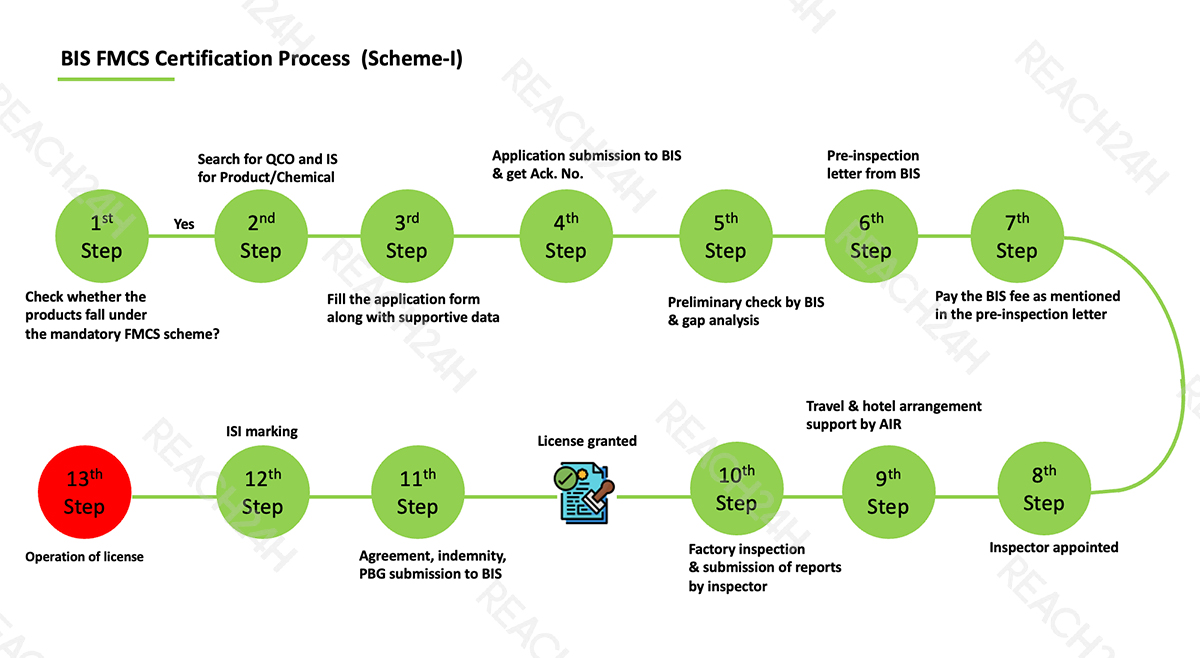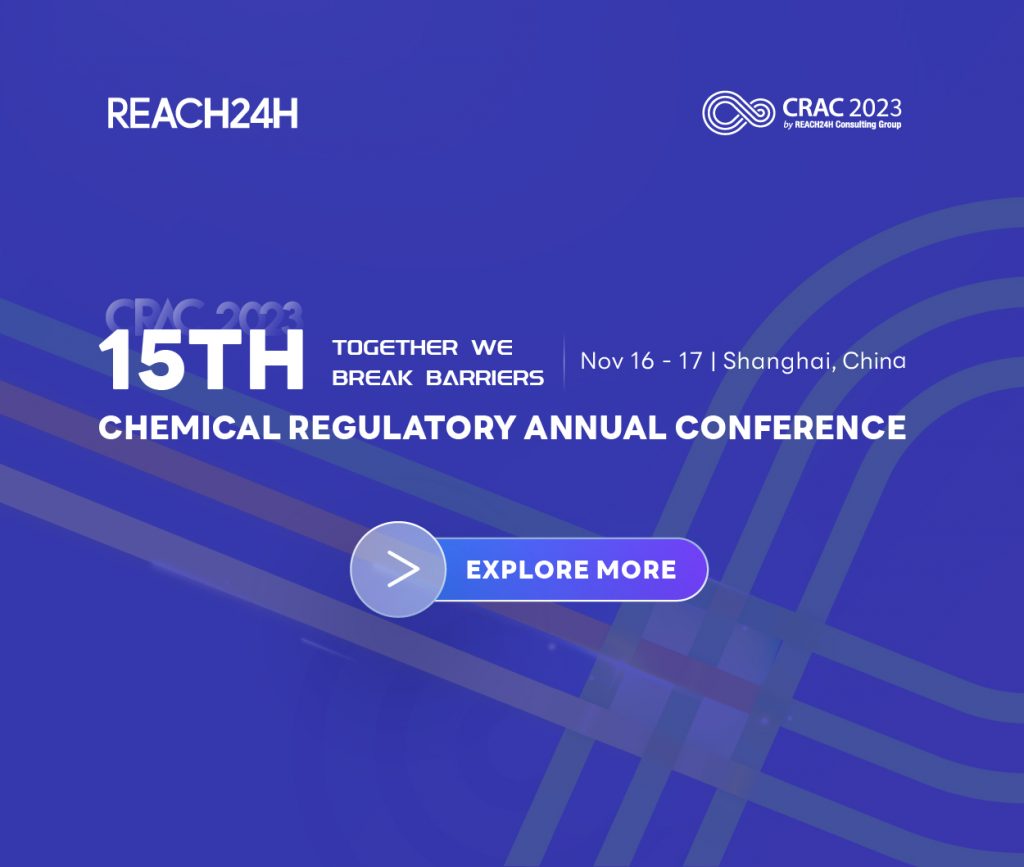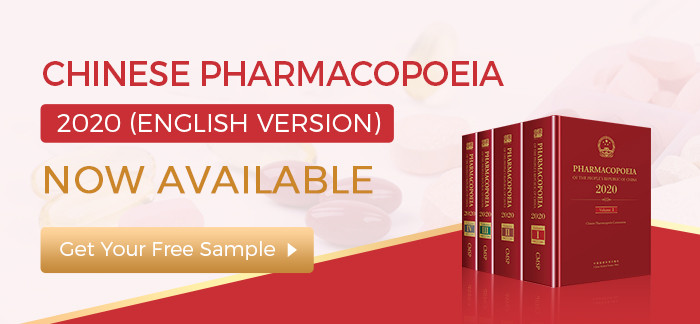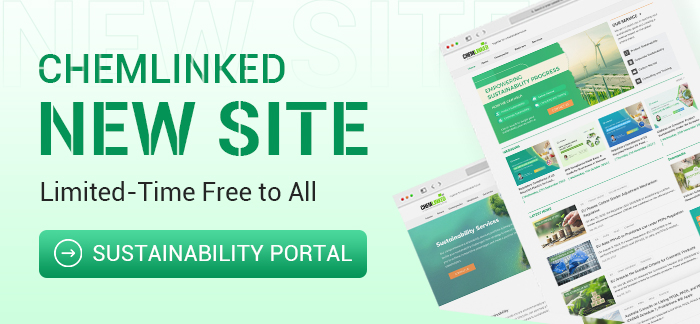BIS FMCS Chemical Certification in India: What You Need to Know
Overview of BIS FMCS
Foreign Manufacturer Certification Scheme (FMCS) is regulated by the Bureau of Indian Standards (BIS) in compliance with the BIS Act, 2016, and the Bureau of Indian Standards (Conformity Assessment) Regulations, 2018. The certification scheme allows foreign manufacturer to continue their businesses in India after receiving the BIS Licence. The certification scheme is not mandatory till now for all categories of products. However, certain goods can only be imported into India with the Standard Mark and a BIS licence, as announced by the Indian government under Quality Control Orders (QCOs).
QCOs are regulated by various regulatory bodies or ministries in India under the observation of Central Government departments based on their product categories. QCOs are published on the gazette of India with their date of implementation. After the effective date of implementation of QCO, except under a valid Licence or Certificate of Conformity (CoC) from BIS, no person shall manufacture, import, distribute, sell, hire, lease, store, or exhibit for sale any product(s) covered by the QCO without a Standard Mark.
To know the date of commencement and updates of QCOs, please click here.
Competent Authority
Under the Foreign Manufacturers Certification Scheme (FMCS), the Bureau of Indian Standards manages the product certification program for foreign manufacturers.
Obligation
The manufacturers whose companies or premises are located outside of India are required to submit their Foreign Manufacturer Certification Scheme (FMCS) application to get a BIS Licence to ensure the compliance of their products to applicable Indian Standard Specifications.
Authorized Indian Representative (AIR)
In accordance with BIS Rule 16B (4) of 1987, if a foreign applicant wants to get a BIS Licence, first they need to designate an Authorized Indian Representative (AIR). AIR must be an Indian resident and is responsible for ensuring compliance with BIS rules and regulations on behalf of the foreign applicant.
For more info on AIR, please click here.
BIS Mandatory Certification Schemes
BIS offers four types of mandatory certification schemes. For specific chemicals regulations, there are two schemes:
- Scheme-I: Indian Standard Institution Mark Scheme (ISI Mark Scheme)
- Scheme-II: Compulsory Registration Scheme (CRS)
BIS FMCS Certification Process (For ISI Mark Scheme)
Chemicals Regulated under BIS Scheme-I & Scheme-II
Under ISI Mark Scheme (Scheme-I): List of Regulated Chemicals, Fertilizers, Polymers & Textiles
| S.No. | Indian Standard Specification | Chemicals, Fertilizers, Polymers & Textile | Date of Implementation | CAS No. |
| 1. | IS 252: 2013 | Caustic Soda -Specification | 2018.04.03 | 1310-73-2 |
| 2. | IS 10116: 2015 | Boric Acid – Specification | 2019.05.16 | 10043-35-3 |
| 3. | IS 15573 | Poly Aluminum Chloride | 2020.02.01 | 1327-41-9 |
| 4. | IS 695 | Acetic Acid | 2024.08.03 | 64-19-7 |
| 5. | IS 2833 | Aniline | 2024.08.03 | 62-53-3 |
| 6. | IS 517 | Methanol | 2024.08.03 | 67-56-1 |
| 7. | IS 5158: 1987 | Specification for Phthalic Anhydride, Technical | 2023.06.22 | 85-44-9 |
| 8. | IS 8058: 2018 | Pyridine | 2024.03.13 | 110-86-1 |
| 9. | IS 16113: 2013 | Gamma Picoline | 2024.03.13 | 108-89-4 |
| 10. | IS 16112: 2013 | Beta Picoline | 2024.03.13 | 108-99-6 |
| 11. | IS 12084: 2018 | Morpholine | 2024.08.01 | 110-91-8 |
| 12. | IS 297: 2001 | Sodium Sulphide, Technical | 2020.12.14 | 1313-82-2 |
| 13. | IS 7129: 1992 | Potassium Carbonate, Anhydrous | 2024.03.13 | 584-08-7 |
| 14. | IS 170: 2004 | Acetone | 2024.03.13 | 67-64-1 |
| 15. | IS 4581: 1978 | Phosphorous Trichloride, pure and Analytical Reagent | 2020.12.14 | 7719-12-2 |
| 16. | IS 11744: 1986 | Phosphorous Pentachloride, Technical | 2020.12.14 | 10026-13-8 |
| 17. | IS 11657: 1986 | Phosphorous Oxychloride, Technical | 2020.12.14 | 10025-87-3 |
| 18. | IS 2080: 2021 | Stabilized Hydrogen Peroxide | 2022.11.24 | 7722-84-1 |
| 19. | IS 3205: 1984 | Precipitated Barium Carbonate, Technical | 2020.12.14 | 513-77-9 |
| 20. | IS 12928: 1990 | Precipitated Barium for Ceramic and Glass Industry | 2020.12.14 | 513-77-9 |
| 21. | IS 4505: 2015 | Sodium Formaldehyde Sulphoxylate | 2020.12.14 | 149-44-0 |
| 22. | IS 6100: 1984 | Sodium Tripolyphosphate, Anhydrous, Technical | 2024.03.13 | 7758-29-4 |
| 23. | IS 14709: 1999 | n- Butyl Acrylate | 2023.12.22 | 141-32-2 |
| 24. | IS 336: 1973 | Ether | 2021.12.22 | 60-29-7 |
| 25. | IS 5295: 1985 | Ethylene Glycol | 2021.12.22 | 107-21-1 |
| 26. | IS 537: 2011 | Toluene | 2024.12.22 | 108-88-3 |
| 27. | IS 15030: 2001 | Terephthalic Acid | 2023.06.22 | 100-21-0 |
| 28. | IS 14707: 1999 | Methyl Acrylate | 2025.03.31 | 96-33-3 |
| 29. | IS 14708: 1999 | Ethyl Acrylate | 2025.03.31 | 140-88-5 |
| 30. | IS 12345: 1988 | Vinyl Acetate Monomer | 2025.03.31 | 108-05-4 |
| 31. | IS 4105: 2020 | Styrene (Vinyl Benzene) | 2024.04.24 | 100-42-5 |
| 32. | IS 5149: 2020 | Maleic Anhydride, Technical | 2024.04.24 | 108-31-6 |
| 33. | IS 12540: 1988 | Acrylonitrile | 2024.04.24 | 107-13-1 |
| 34. | IS 17265: 2019 | 100 Percent. Polyester Spun Grey and White Yarn (PSY) | 2023.10.05 | |
| 35. | IS 17261: 2019 | Polyester Continuous Filament Fully Drawn Yarn (FDY) | 2023.10.05 | |
| 36. | IS 17264: 2019 | Polyester Industrial Yarn (IDY) | 2023.07.03 | |
| 37. | IS 17262: 2019 | Polyester Partially Oriented Yarn (POY) | 2023.10.05 | |
| 38. | IS 17263: 2019 | Polyester Staple Fibres (PSF) | 2023.04.03 | |
| 39. | IS 7328: 2020 | Polyethylene Material for moulding and extrusion
(i) Low Density Polyethylene (LDPE) (ii) Linear Low-Density Polyethylene (LLDPE) (iii) High Density Polyethylene (HDPE) |
2024.01.05 | |
| 40. | IS 11356: 2020 | Styrene-Butadiene Rubber Latex | 2021.10.12 | 9003-55-8 |
| 41. | IS 16481: 2016 | Synthetic Micro-Fibres for use in Cement Based Matrix | 2023.04.03 | |
| 42. | IS 12795: 2020 | Linear Alkyl Benzene | 2023.04.03 | 67774-74-7 |
| 43. | IS 13601: 1993 | Ethylene Vinyl Acetate (EVA) Copolymers | 2024.04.03 | 24937-78-8 |
| 44. | IS 7686: 2020 | 3(N, N-Diethyl) Aminophenol | 2021.11.22 | 91-68-9 |
| 45. | IS 4566: 2020 | Methylene Chloride (Dichloromethane) | 2023.11.20 | 75-09-2 |
| 46. | IS 2012: 2006 | Red Phosphorus | 2021.11.23 | 7723-14-0 |
| 47. | IS 17077 : 2019/ISO 19062-1 : 2015 | Acrylonitrile Butadiene Styrene (ABS) | 2023.06.12 | 9003-56-9 |
| 48. | IS 869: 2020 | Ethylene Dichloride | 2024.03.12 | 107-06-2 |
| 49. | IS 17370: 2020 | p-Xylene | 2024.03.19 | 106-42-3 |
| 50. | IS 14434: 1998 | Polycarbonate | 2024.03.12 | 25037-45-0 |
| 51. | IS 17397 (Part 1) : 2020/ISO 16365-1 : 2014 | Polyurethanes | 2024.03.19 | 9009-54-5 |
| 52. | IS 17442: 2020 | Vinyl Chloride Monomer | 2024.03.12 | 1704-01-6
75-01-4 |
| 53. | IS 17450: 2020 | 1,3 Phenylenediamine | 2022.10.25 | 108-45-2 |
| 54. | IS 10931: 1984 | Lauric Acid | 2024.04.24 | 143-07-7 |
| 55. | IS 12029: 1986 | Acid Oil | 2024.04.24 | 112-80-1 |
| 56. | IS 12067: 1987 | Palm Fatty Acids | 2024.04.24 | 68440-15-3 |
| 57. | IS 12068: 1987 | Rice Bran Fatty Acids | 2024.04.24 | 93165-33-4 |
| 58. | IS 12069: 1987 | Coconut Fatty Acids | 2024.04.24 | 61788-47-4 |
| 59. | IS 12124: 1987 | Rubber Seed Fatty Acids | 2023.10.24 | |
| 60. | IS 12361: 1988 | Hydrogenated Rice Bran Fatty Acids | 2024.04.24 | Same as rice bran fatty acid |
| Newly Added Petrochemicals | ||||
| 61. | Poly vinyl chloride (PVC) homopolymer | IS 17658: 2021 | 24.08.2024 | 9002-86-2 |
| 62. | Polypropylene (PP) materials for moulding and extrusion | IS 10951: 2020 | 24.08.2024 | 9003-07-0 |
| 63. | Diesel engines – NOx Reduction Agent AUS 32 | IS 17042 (Part-1): 2020/ISO 22241-1: 2019 | 24.08.2024 | (57-13-6) same as Urea |
Information source: https://www.bis.gov.in/product-certification/products-under-compulsory-certification/scheme-i-mark-scheme/
Total WTO Notified Chemical QCOs by the Department of Chemical & Petrochemicals in previous year
| Chemical QCOs | Indian Standard | Date of WTO notification | Schemes of BIS as per Schedule-II |
| 2 Chemical QCOs notified to WTO in August (Both will be covered under Scheme-I) | |||
| Poly vinyl chloride (PVC) homopolymers (CAS No. 9002-86-2) | IS 17658: 2021 | 11.08.2023 | Scheme-I |
| Polypropylene (PP) materials for moulding and extrusion (CAS No. 9003-07-0) | IS 10951: 2020 | 15.08.2023 | Scheme-I |
| 9 chemical QCOs notified to WTO in September for Scheme-I | |||
| Diesel engines – NOx Reduction Agent AUS 32 (CAS No. 57-13-6) same as Urea | IS 17042 (Part-1): 2020/ISO 22241-1: 2019 | 13.09.2023 | Scheme-I |
| Alumina calcined (CAS No. 1344-28-1) | IS 17441 (Part 1): 2021 | 13.09.2023 | Scheme-I |
| Toluene Diisocyanate (CAS No. 26471-62-5) | IS 17916: 2022 | 13.09.2023 | Scheme-I |
| Sodium Cyanide (CAS No. 143-33-9) | IS 11782: 1986 | 13.09.2023 | Scheme-I |
| Monocrotophos (CAS No. 6923-22-4) | IS 8025: 1990 | 13.09.2023 | Scheme-I |
| Industrial Grade Urea (57-13-6) | IS 1781: 2022 | 13.09.2023 | Scheme-I |
| Captafol (CAS No. 2425-06-1) | IS 10300: 2023 | 13.09.2023 | Scheme-I |
| Ethylene oxide (CAS No. 75-21-8) | IS 5573: 1984 | 13.09.2023 | Scheme-I |
| Anhydrous Ammonia (CAS No. 7664-41-7) | IS 662: 2020 | 13.09.2023 | Scheme-I |
Under Compulsory Registration Scheme (Scheme-II): List of Regulated Chemicals
| S. No. | Indian Standard (IS) No. | Products | Date of Implementation |
| 1. | IS 798:2020 | Orthophosphoric Acid | 2022.12.10 |
| 2 | IS 17439:2020 | Polyphosphoric Acid | 2022.12.22 |
| 3. | IS 17412:2020 | Trimethyl Phosphite | 2022.10.03 |
General Differences Between Scheme-I and Scheme-II
| Major Differences | Scheme-I | Scheme-II |
| Application Form | Main Application Form-V as specified in BIS (Conformity Assessment) Regulations, 2018 Scheme-I | Main Application Form-I as specified in BIS (Conformity Assessment) Regulations, 2018-Scheme-II |
| Inspector Audit | BIS grants a licence after conducting an inspection visit to the factory location. | BIS grants a licence to the manufacturer based on self-declaration of conformity of the product. |
| Forms for AIR Appointment | Foreign Manufacturers need to appoint/nominate an Authorized Indian representative through Form No. VI & VII as specified in BIS (Conformity Assessment) Regulations, 2018, Scheme-I | Foreign manufacturers, required to nominate an Indian representative are specified in Form – IIIA, Form – IIIB, and Form – IV under BIS (Conformity Assessment) Regulations, 2018, Scheme-II |
| Mode of Application Submission | The process of Application Submission to BIS is available in Manual Mode | In case of Scheme-II, the online portal (CRS is designed) for Application submission. |
| Timeline for Grant of Licence | The process of granting of licence is expected to be completed within 90 working days provided all the documentation and conformity of the product is established as satisfactory at the first instance. | The process of granting of licence is expected to be completed within 20 working days provided all the documentation and conformity of the product is established as satisfactory at the first instance. |
| Marking Scheme | After the Grant of Licence, ISI marks shall be used and annual marking to be paid in advance.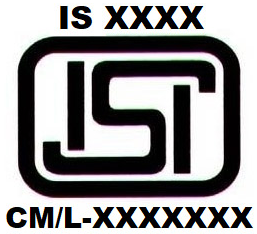 |
After the Grant of Licence, the Standard Mark shall be issued to the manufacturer.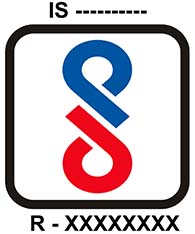 |
| Marking & Labelling | Color Scheme not applicable for the ISI mark as per Scheme-1 | The color scheme of the Standard Mark shall be in accordance with Annexure-III, annexed to Scheme-II. |
| Chemical Listed | Currently, Scheme-1 includes 60 chemicals under the heading of Chemicals, Fertilizers, Polymers & Textiles | Currently, Scheme-II includes three chemicals. |
Validity:
The Licence, under Scheme-I, is initially granted for up to 2 years. After which, the licence needs to be renewed for up to 5 years.
Government Fee:
- Indian Standard Institution Mark Scheme (Scheme-I):
| S.No. | Types of Fee/Charges Applicable | In INR |
| 1. | Application Fee (Non-refundable) | ₹1,000 |
| 2. | Special Visit Expenses for Inspections | Varies due to circumstances |
| 3. | Testing Fee | Varies due to circumstances |
| 4. | Annual Licence Fee | ₹1,000 |
| 5. | Renewal Application Fee (Non-refundable) | ₹1,000 |
| 6. | Late Fee for Renewal | ₹ 5,000 |
| 7. | Marking Fee | Varies due to circumstances |
| 8. | Issue of Duplicate Licence | |
| For foreign manufacturers, a bank guarantee of 10,000 USD needs to be submitted. | ||
For more info on fees and charges, please click here.
- Compulsory Registration Scheme (Scheme-II)
| S.No. | Types of Fee/Charges Applicable | In INR |
| 1. | Application Fee (Non-refundable) | ₹1,000 |
| 2. | Processing Fee per Application for Grant of Licence | ₹50,000 |
| 3. | Applications with more than one test report shall be additionally charged | ₹20,000 for each additional test report |
| 4. | Annual Licence Fee | ₹1,000 |
| 5. | Renewal Application Fee (Non-refundable) | ₹1,000 |
| Note: When renewal is applied for a period of more than two years, ₹25,000 shall be charged for each additional year and the fee shall be paid in advance for the validity period of the licence. | ||
For more info on fees and charges, please click here.
REACH24H’s Services
- Application Preparation and Submission to the BIS
- Authorized Indian Representative (AIR) Appointment
- Inquiries and Communications with Competent Authorities
- Factory Inspection Assistance for ISI Mark Scheme
- Renewal & Change for the Certificates
- Marking and Labelling Support After Licence Granted
- Customized Training
For other services, please visit https://www.reach24h.com/en/industrial-chemicals.
Why Choose REACH24H
- Over 8,000 Satisfied Clients: To date, we have served over 8,000 chemical enterprises, providing them with comprehensive regulatory compliance services that cover a wide range of countries and regions.
- Diverse Expertise and Language Skills: Our team of experts has diverse professional backgrounds and comprehensive language skills to provide efficient, diverse, and high-quality regulatory compliance services.
- Multiple Regions Covered: REACH24H provides one-stop chemical compliance services covering various regions, including China, the EU, the UK, the US, Canada, Eurasia, Turkey, Japan, Korea, Thailand, Philippines, Vietnam, Malaysia, India, Singapore, Australia, New Zealand, and more.
- Specialized Industrial Chemical Division: Our Industrial Chemical Division comprises specialized departments for REACH regulatory affairs, GHS and EHS compliance, AP chemical registration, Japan business, and technical services.
